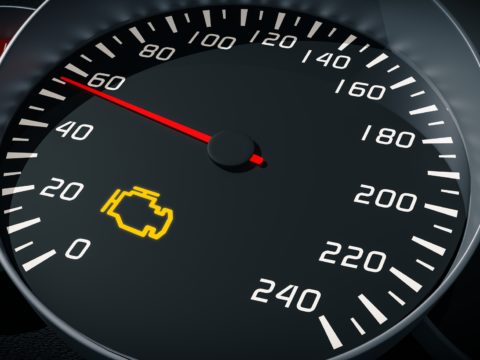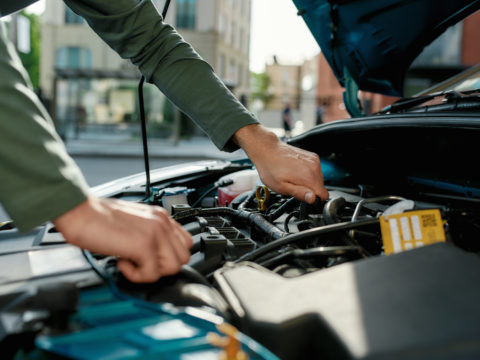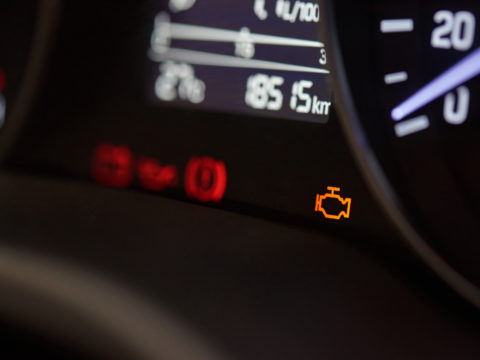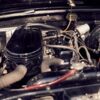Do you sometimes feel a powerful vibration or hesitation from the engine when driving your car? The primary cause could be an engine misfire.
Thankfully, you can easily fix most of the causes of engine misfire once you identify them. Keep reading to learn more about engine misfires, causes, and how to fix them.
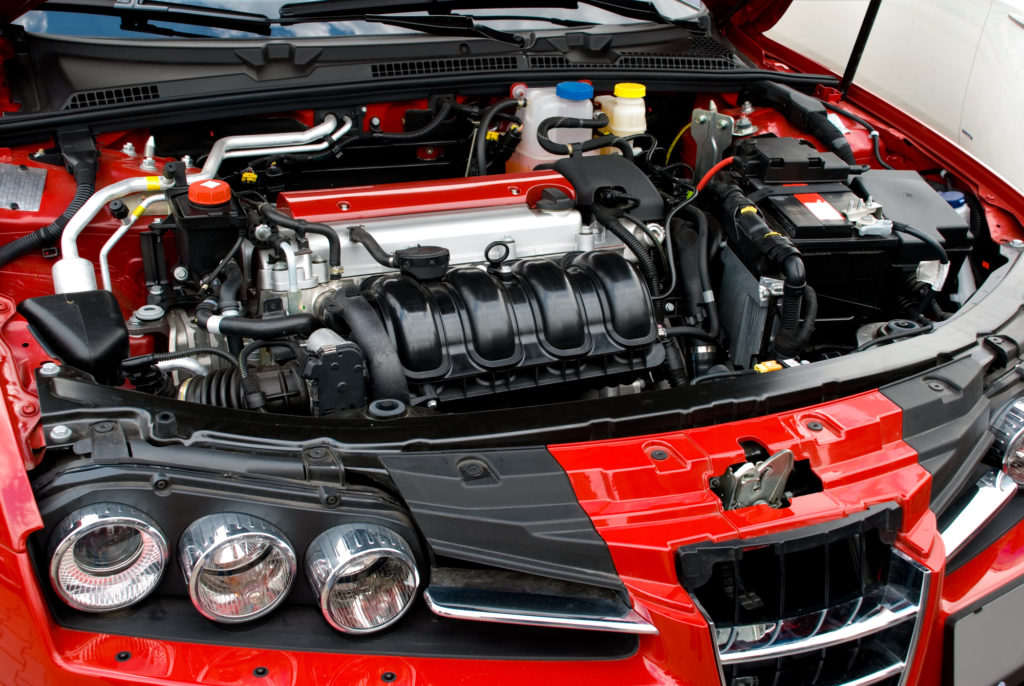
Contents
What Does Engine Misfire Mean?
All engine cylinders have to produce power for complete combustion to happen. But this isn’t always the case as one or two cylinders may not function as expected, that is, generate power. In that case, an engine misfire occurs.
Several signs will tell you that your engine is misfiring, including the car vibrating as mentioned above. Modern vehicles also have lights popping up to warn you of the same.
What Causes Engine Misfire Code?
What could be making your engine misfire? Here are the seven different causes of an engine misfire code.
1. Damaged Cylinder Walls
Perhaps you can hear some unusual sneezing sounds coming from the engine when the car is running. You can also get alarmed by a distinct smell that you can’t just ignore. Such symptoms point to a cylinder’s damaged walls, causing engine misfire.
If you experience such symptoms, you should take your car to a professional mechanic for a thorough engine inspection.
2. An Imbalance Ratio Between Air and Fuel
The air to fuel ratio must be balanced for the spark plug to ignite the mixture, causing an explosion. From this explosion, your car will be able to start and move. However, an engine misfire will occur if there’s an air to fuel mixture imbalance in the combustion chamber.
Several reasons can cause this imbalance. These are vacuum leaking, the fuel pump not being in good condition, an issue with the airflow sensor, or a clogged fuel filter.
3. Check on the Ignition System
Is your car’s ignition system in perfect shape? Issues to do with the ignition system are common causes of engine misfires. An ignition system has several parts, and all of them have to be fully operational to avoid an engine misfire.
For instance, the spark plugs not being able to cause enough spark in the combustion chamber for the ignition can easily cause an engine misfire. It’s worth noting that the spark plugs are always the first suspect whenever there’s an engine misfire.
That said, other ignition system components can also cause an engine misfire, including coil packs, control modules, and ignition wiring cables.
4. Mechanical Problems
A car typically has several mechanical parts contributing to the flawless operation of its engine. These are valves, pistons inside each engine cylinder, cylinder walls, and camshaft lobes.
Pistons, for instance, work to compress the mixture of air/fuel ratio for complete combustion, but only when the cylinders are sealed off completely. The loss of compression may happen if the cylinders aren’t sealed off, causing an engine misfire.
Also, an engine misfire occurs if any of the above mechanical parts are worn out, a bad fuel injector, or a head gasket leak. If the cause of your engine misfire is a result of mechanical problems, the car will never run as fast despite your high speed.
5. Something to Do with the Engine Control Module
The engine control module (ECM) is the central computer responsible for managing your car’s engine. Any fault in this component can cause an engine misfiring since the combustion process will not take place as it should.
A simple car rebooting can help salvage the situation. What you must do then, if you’re sure that the ECM is the cause of engine misfire, is to stop your battery.
Connecting it back after a few minutes should eliminate the engine misfire. If it doesn’t, you may need to take this component to your car dealer for a good examination.
6. Check the Fuel System’s Components
Although the fuel system components such as the fuel injector, fuel filter, or fuel pump tend to wear out slowly, they eventually do wear out. Check if these fuel system parts are dirty, especially the fuel filter and fuel injector.
If these parts are dirty, the exhaust wastage may get to the intake manifold, creating an engine misfire.
Fortunately, cleaning these components will solve the situation. Consider replacing some of the parts if, even after cleaning, you can still spot some stubborn stains on them.
7. How About Low Fuel Pressure?
Like you’ve seen, there are many causes of engine misfire, and low fuel pressure is also one of the common causes. If your engine is experiencing low fuel pressure, it simply means that the cylinders will not be getting enough fuel needed to run your car.
If you suspect low fuel pressure is the cause, the following parts can lead you in the right direction. The fuel regulator should be the first suspect because it hinders enough pressure from getting through if it gets defective.
Also, check if the fuel filters are in good shape or whether the fuel pump is faulty.
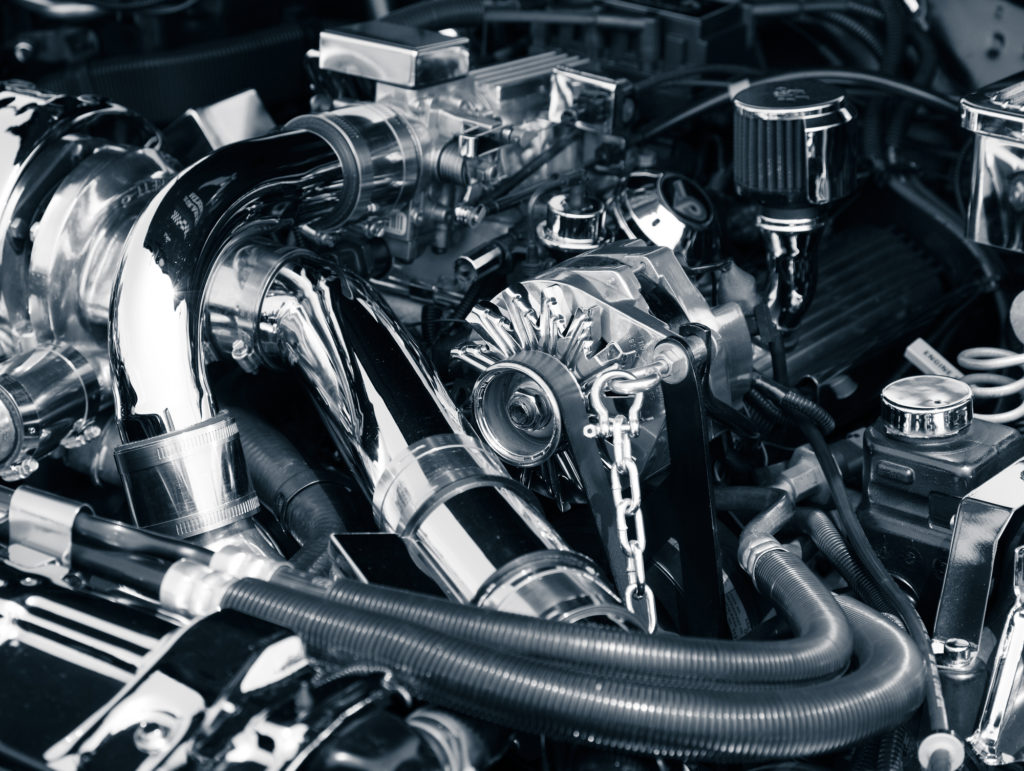
How to Diagnose Engine Misfire?
Your engine can misfire at any time, not always when you start the engine. Sometimes, it occurs in the middle of driving your car, without any warning.
Even though you may still be able to drive your car with its engine misfiring, you shouldn’t do it for long. That’s because it won’t take long before the engine becomes completely damaged.
If you notice your engine misfiring, you should quickly diagnose its cause and correct it.
A code reader or scan tool can help you diagnose engine misfires by retrieving data from your car to give you an exact cause.
Alternatively, you can diagnose engine misfires by:
- Getting a spark plug tester to help identify if the cause of your engine misfire comes from the spark plugs.
- Physically checking for corrosion or clogging on the ignition system components identified above and cleaning or replacing if necessary.
- Checking for vacuum leaks using dishwashing soap and water. Spray the mixture along the valves, intake manifold gasket, and vacuum lines using a spray bottle. Then, start your engine to see if any bubbles are forming as a sign of vacuum leaks.
Here’s an in-depth YouTube video that can help DIY enthusiasts diagnose engine misfires without a scanner.
Symptoms of a Misfiring Engine
There are several symptoms of a misfiring engine, including:
1. Vibrations
Your engine will never balance if one or two of its cylinders isn’t firing correctly. As a result, you may experience loud vibrations when driving or when the vehicle is idle. The vibrations usually occur at the cabin.
2. Noises Coming from the Engine
Noises from engine misfires are not similar to everyday automobile noises. These sound abnormal, and any driver can easily identify them. Keep your ears open for the popping or sneezing noises that usually come out after an engine misfire occurs.
3. Poor/Rough Acceleration
When there’s an engine misfire, you’ll notice rough and poor acceleration while driving some cars.
A faulty oxygen sensor can make the air/fuel ratio in the combustion chamber deviate, becoming too lean or rich in fuel. As a result, the car goes into a limp mode. The best thing is to use this limp mode to get off the road to avoid any accidents or damaging the engine.
4. Unusual Smell from the Engine
This symptom is also pretty common in cases of engine misfiring. If the cylinder walls are damaged, the fluids leak through the engine with every misfire, resulting in a foul smell.
5. Rough Idling
Rough idling is such a noticeable symptom of an engine misfiring. It is also one of its common causes. Compromising the air to fuel mixture due to an engine misfire will make your engine jump up and down.
In this case, your car may start smoothly but suddenly stop, leading to bumpy driving, an experience you don’t want to have.
6. The Engine Light
Most modern cars come with sensors connected to every component to warn you if anything is amiss.
Engine sensors usually send information to the engine control unit whenever they sense anything wrong with the engine. The check engine light will pop up once the control unit scrutinizes the problem and deems it serious.
How to Fix Engine Misfire?
Are you tired of feeling that jerking motion while driving? Here are what you can do to fix your car’s engine misfire. But first, note that finding the cause of your engine misfiring is the first step to fixing it.
Consider replacing the following components if, after diagnosis, you find them to be why your engine misfires.
- Spark plugs
- Spark plug wires
- Ignition coils
- Intake manifold gasket if vacuum leaks are the cause.
- The fuel injector
- The head gasket
Is It OK to Drive a Car with a Misfiring Engine?
You may be able to drive your car even with the misfiring engine, but it’s not advisable. That’s because, with time, severe damage to your car’s engine may occur, which is costly to replace or repair.
Besides damaging the engine, it’s also not safe to drive a car with a misfiring engine. Another cylinder may become ineffective in the process, causing an accident.
How Much Will It Cost You to Fix a Misfiring Engine?
It may cost you between $100 to $500 for the repair parts alone minus labor. Labor cost ranges from $250-$700, depending on the model and year of your vehicle.
These charges also depend on the parts you’ll be replacing on your car. For instance, a single spark plug can be $10, but you may need six, which is $60. The mechanics may charge you between 45 to 100 dollars for replacement.
FAQs
Can a misfire ruin an engine?
Yes. Even though the seriousness doesn’t occur right away, driving a car with engine misfiring can damage your engine over time.
What causes engine misfire under load?
The leading cause of engine misfire under load is worn-out spark plugs. Be aware that the sluggish acceleration can easily cause an accident.
Can you have a misfire without a check engine light?
Yes, the engine can misfire without a check light. You can use an OBDII scanner to determine the specific cylinder misfiring.
Can an engine misfire fix itself?
An engine misfire will not go away until you fix it. The best thing is to find the cause and rectify it as soon as possible before damaging the engine or your vehicle.

